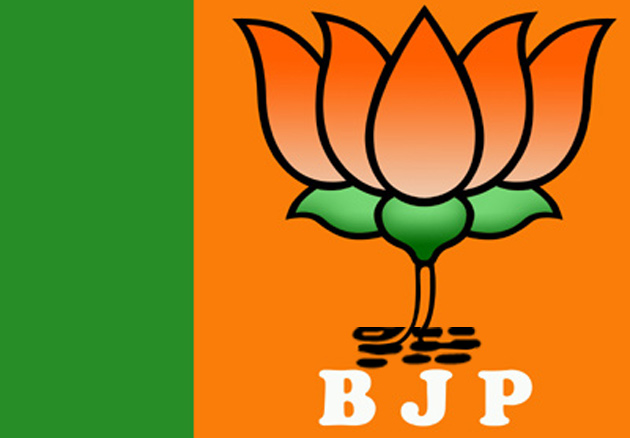By Anirban Ganguly
- An indicator of the relevance of a political party is when it continues to grow and widen its base and acceptability and when it nurtures a democratic approach and spirit right from the grassroots upward. As the Bharatiya Janata Party entered its 36th year of existence on April 6, 2016 that indicator reflects a robust sign of health and growth.
Through an unceasing process of growth and struggle the BJP has today registered a pan-Indian presence and succeeded in attracting global attention due to its wide reach and its capacity to positively attract and enlist an ever-growing number of members, especially youth. While a number of other political parties are shrinking in size or find it difficult to attract new talent and energy, the BJP continues to attract aspirational India by putting before it a new vision in which affirmative action for national growth and empowerment has become the inspiring mantra.
To be counted as the largest political party in the world is no mean achievement for a Party which, in a sense, began its journey a little over 3 and a half decades back when the space for an alternate political narrative in India was shrinking and its contour was at an all time minimum. With 11 crore new members and with governments in 12 states – either on its own or in a coalition – and with an unprecedented representation countrywide from the northeast to Kerala in local bodies, the BJP has truly emerged as a grassroots Party with a deep connect with the soil and with a deep empathy with the aspirations of the people of India.
Another sign that a political Party continues to remain a vehicle of dynamism is when it looks upon itself as a movement, as a worker driven instrument, as a continuum and not remain confined to the dictates or directives of a particular political dynasty. The BJP is a Party in which its founding ideology and ideals continue to play the dominant role and which continues to see itself as a worker and ideology driven Party. It is a Party where thinking, where intellectual capital and input is not only appreciated but is actively encouraged. Workers across the board have been exhorted to the develop the capacity and strength of thought, of articulation of ideas and of a deep study of those thoughts that have defined the Party as a mighty political flow in post independent India’s political history.
Inspired by this flow of being a workers’ movement, the BJP has recently launched itself into a countrywide movement of trying to retrieve historical information on those workers and leaders countrywide who have, through their sacrifices and sweat, created the Party and have led it to the position of eminence and acceptability it occupies today. Instead of singing the glories of a particular dynasty or its members, the BJP wishes to celebrate and commemorate the countless leaders and workers who have helped build its edifice across the country. Such an approach to one’s political legacy is hardly the order of the day and even here the BJP remains the exception by displaying a deep sense of recognition for its most ordinary and humble workers. BJP president Amit Shah has continuously exhorted workers and leaders to retrieve that past which saw a ceaseless struggle for establishing the alternate political path and ideal.
In order to maintain its vigour of vision and of action, in order to be considered as a serious vehicle for social transformation, a political party must not limit itself and its activities to electioneering alone but must aim to be constantly active in trying to work out new agendas, new projects and new missions. Here too BJP continues to remain an exception, it is gradually turning itself, unlike others, into a vehicle for spearheading socially transformative agendas, taking up as part of its countrywide programmes challenges such as saving the girl child, cleaning the mighty mother Ganga and furthering the fundamental objectives of Swachh Bharat.
Democracy and the democratic spirit and approach is the very raison d’être of the BJP. In its earlier avatar it had stoutly defended democracy and democratic rights when an intolerant Congress (I) government under Indira Gandhi had imposed the draconian emergency displaying its fascist face and tendencies. The BJP has, throughout its existence, worked to strengthen the democratic spirit and ethos of the people of this country. It has demonstrated that commitment in its emphasis on good governance where Prime Minister Narendra Modi himself reaches out the people and in a veritable democratic spirit asks them to interact with him by giving him their suggestions, views and expectations.
In its own working the BJP has again stood out, conducting organisational elections from the state up to the national level without a hitch or halt. Such an achievement is also a sign of the health of the Party, especially at a time when the concept of internal democracy in political parties in India has all but disappeared.
A fundamental criterion to judge a political Party is whether it offers a vision that is futuristic and aspirational, a vision that seeks to turn India into a leading power, the BJP’s vision of India’s greatness is such a futuristic vision, a vision which aspires to achieve self-reliance, respect and a leading position for her on the global stage. Indeed, the BJP is not only the Party of India’s present but also of her future and on that count it stands apart. It continues to base and drive itself on Dr Syama Prasad Mookerjee’s founding exhortation to uphold Bharatiya sanskriti and maryada. There has been no compromise.
(The views expressed are the author's own and do not necessarily reflect the position of the organisation)

